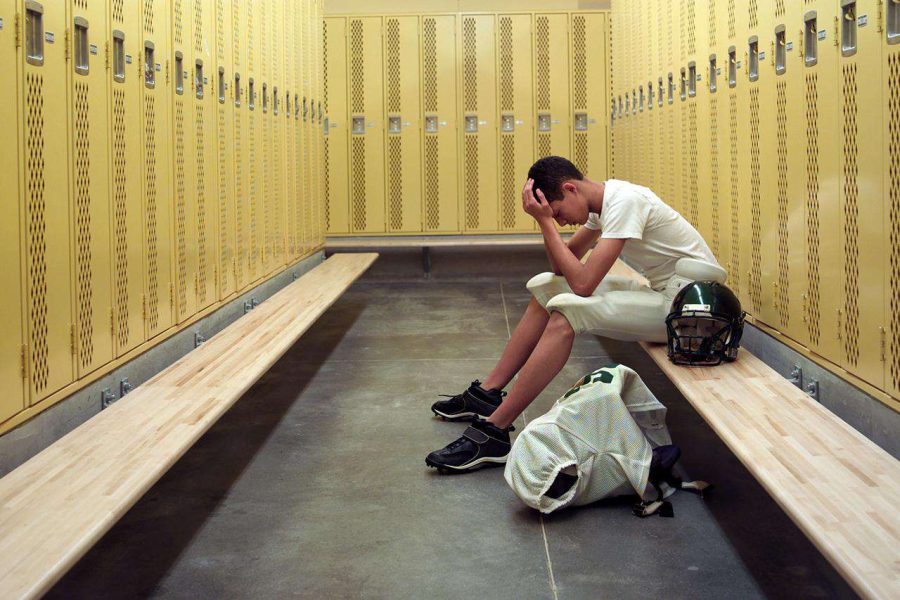Anxiety disorders in athletes
December 1, 2022
The mind and body connection. For some, the act of exercising releases stress, and the body in turn secretes a chemical called endorphins. However, according to the NCAA, licensed psychologist Dr. Scott Goldman analyzed the following: nearly 85 percent of certified athletic trainers believe anxiety disorders are a growing concern. So, let’s dive into the key components of this astonishing statistic.
For starters, performance anxiety is anxiety driven in both practice and competitive settings. In a study conducted by a team at the University of Wisconsin-Milwaukee, Department of Kinesiology in Milwaukee, WI, it found that anxiety relating to sports performances are associated with sport injury prevention, rehabilitation, and the return to a sport. The relevance of anxiety due to sports is highly important to note, as in leading players, the fear of getting hurt is linked to a multifaceted correspondence.
Another aspect to recognize is that anxiety is primarily based on thoughts and feelings about the future. For those who experience anxiety, they often fear the future, which the body perceives as a threat. A key aspect in identifying the correct diagnosis as it pertains to anxiety includes Mowrer’s Two-Factor Theory. This helps to better understand the difference with the similarities of fear and avoidance. In Mowrer’s Two-Factor Theory, it is identified that “fear was a product of sign learning” (NAACP), such as experiencing an injury from a sport and not playing the sport again. Further, the second factor is identified as a sense of relief from avoidance. In more detail, the moment one steps onto the field, court, or rink, the high anxiety and stake of livelihood is especially crucial for the professional athlete. However, let’s consider the average high school or college athlete.
With stress relating to school and social lifestyles, keeping up as an athlete in school comes with the fear of ruining one’s reputation, increasing responsibilities, and other risk factors for increased anxiety. However, there is something you can do to alleviate the stress related to playing sports. While the American College of Sports Medicine states 35 percent of elite athletes suffer from mental illness, help is out there. As part of an initiative to increase awareness, acceptance, and guidance for those who are suffering, Sport Psychology is a growing region of psychology that implies interventions to assist athletes from those who are recreational players to Olympic athletes. Utilizing cognitive and behavioral skills, counseling, clinical interventions, and more, these psychological techniques have helped athletes who have come across an array of fears upon playing a sport. Through thoughtful research and understanding the premise of these fears, it is evident that help is available. While you may be fighting the fears within your head, it is important to note that in the long term, anxiety and fear can help make you a stronger player, teammate, and person.
